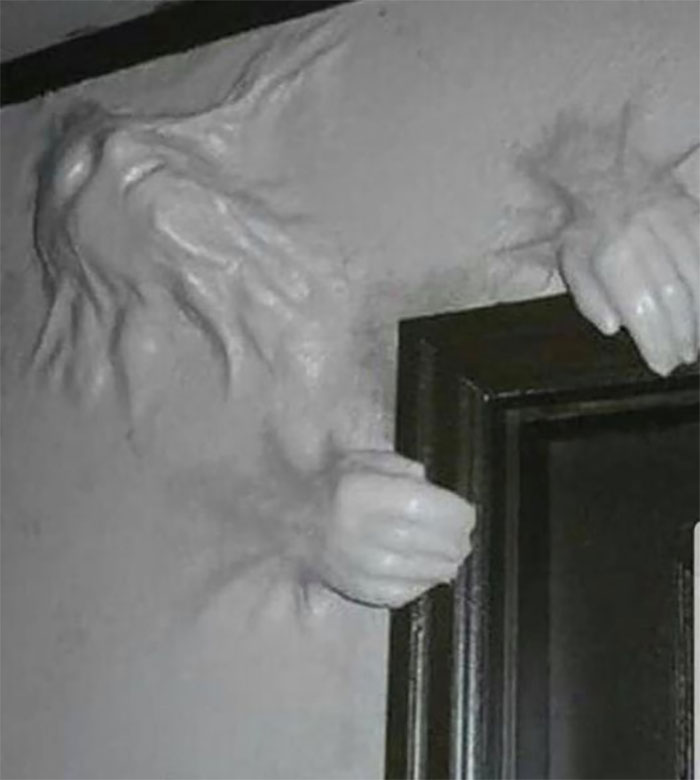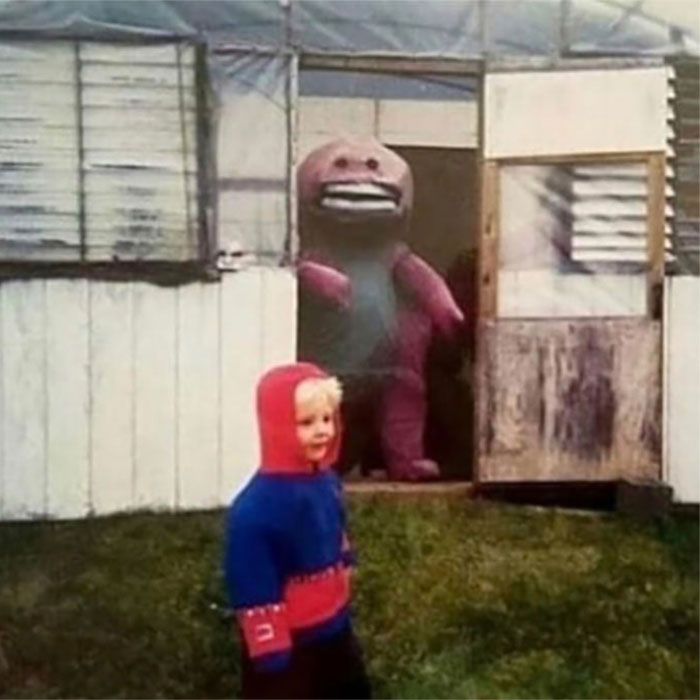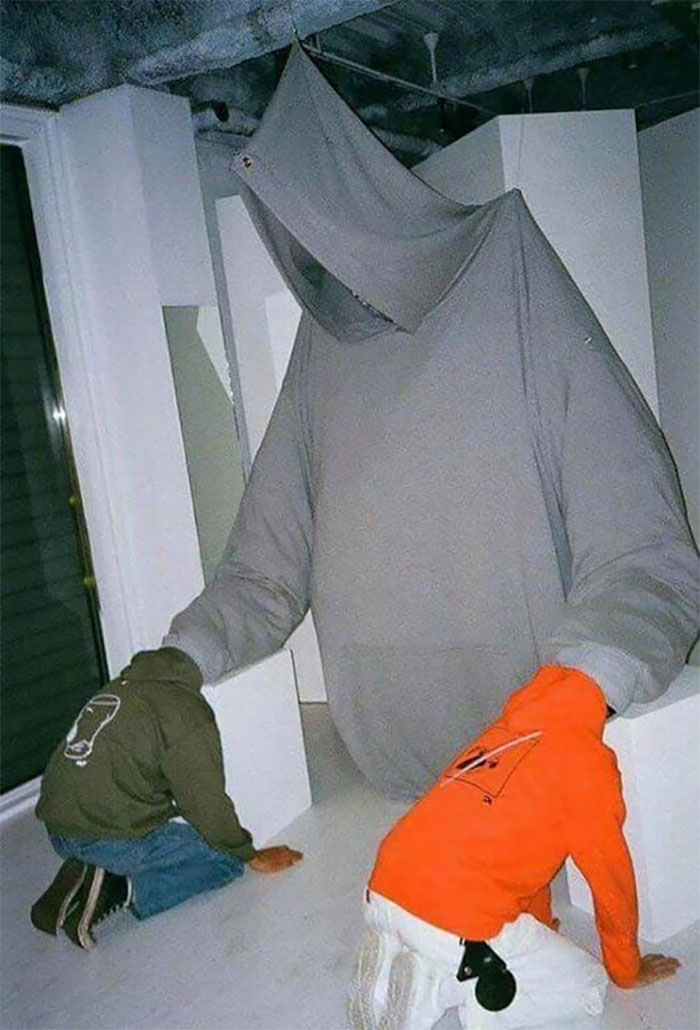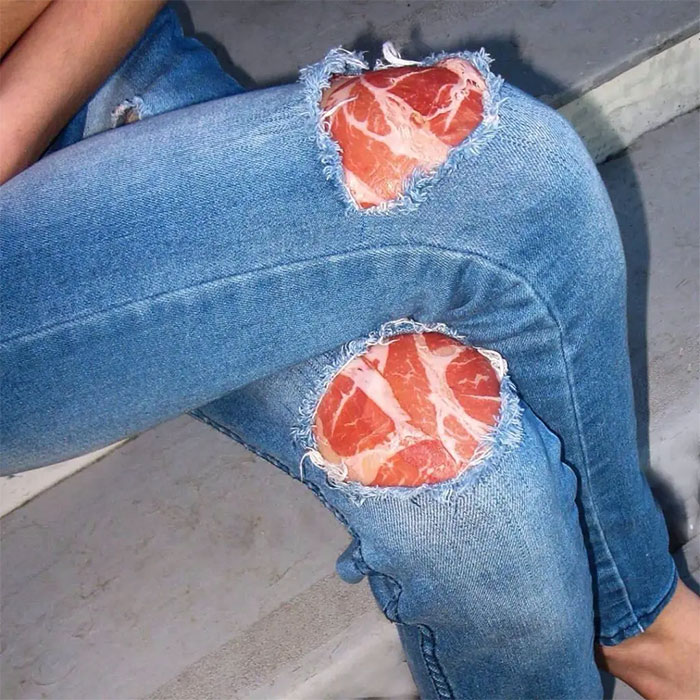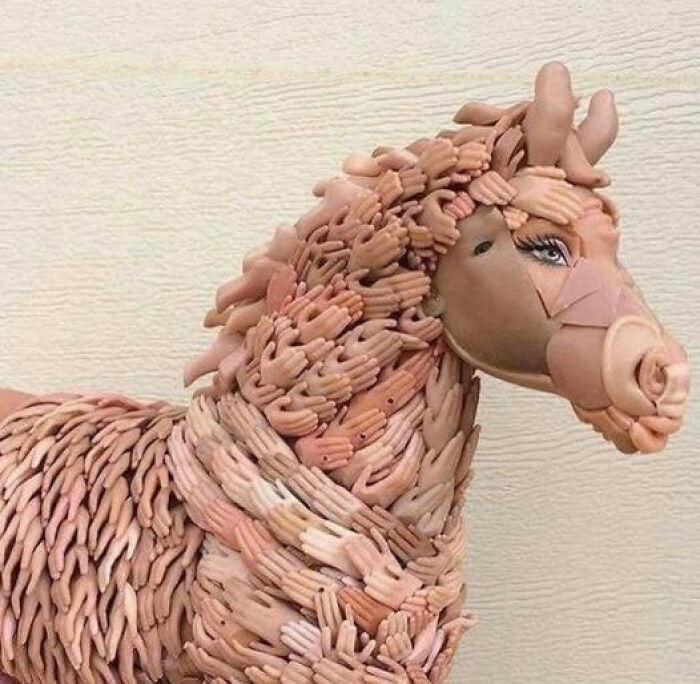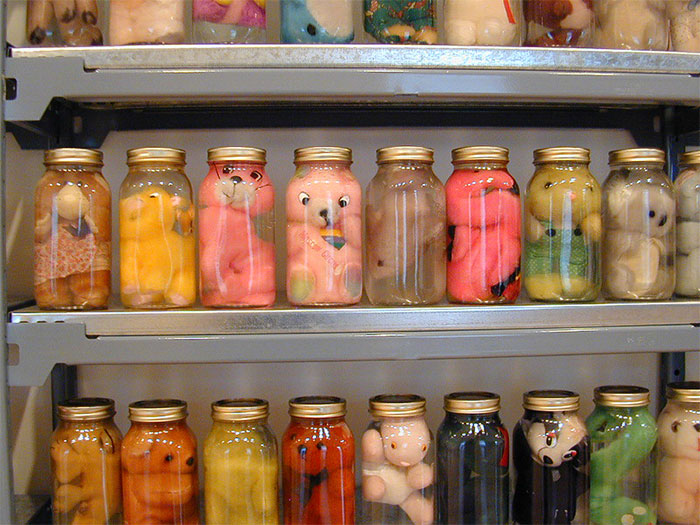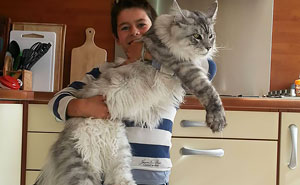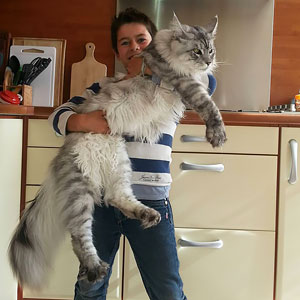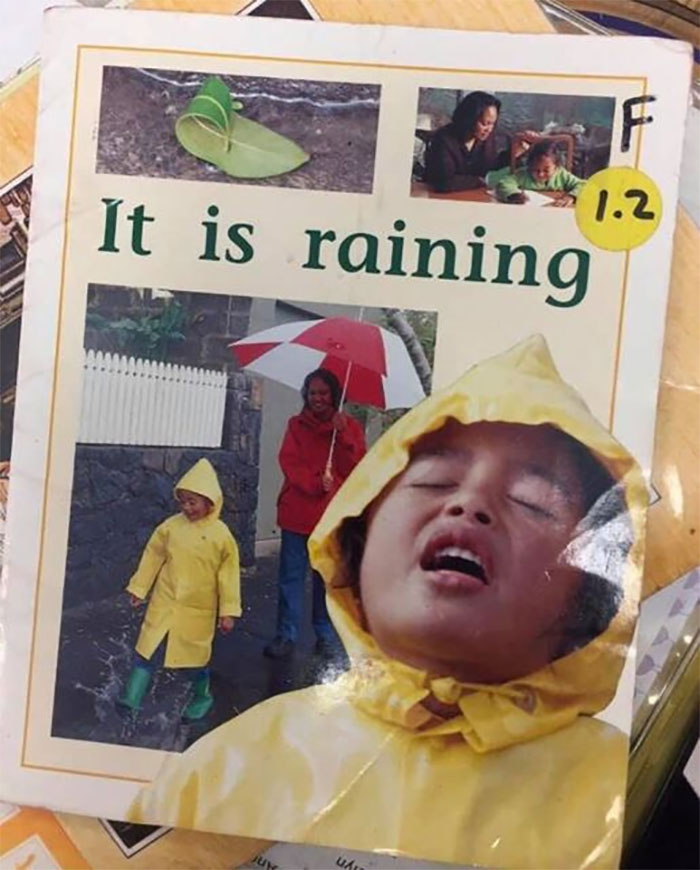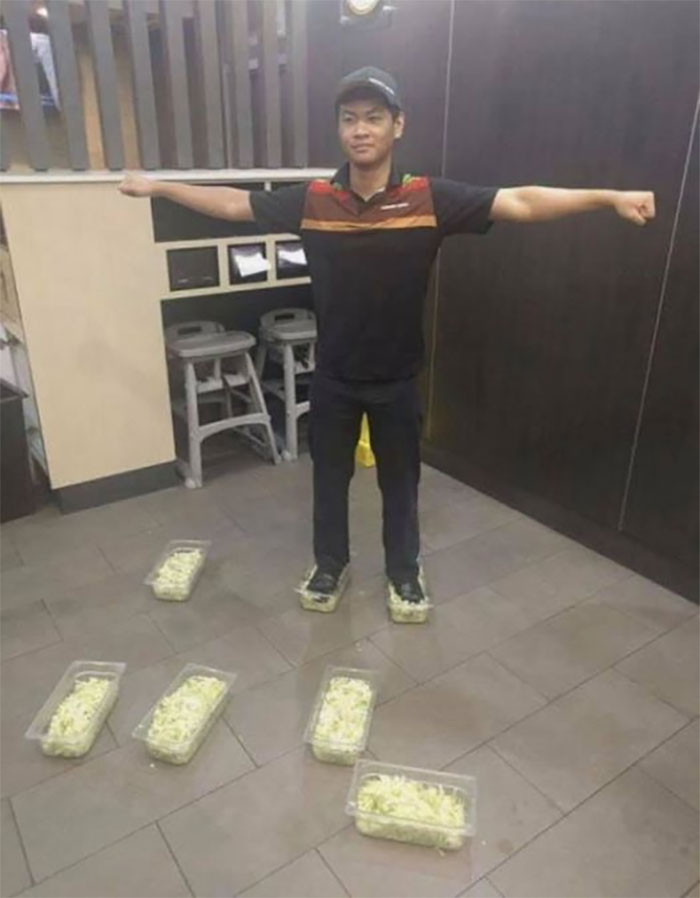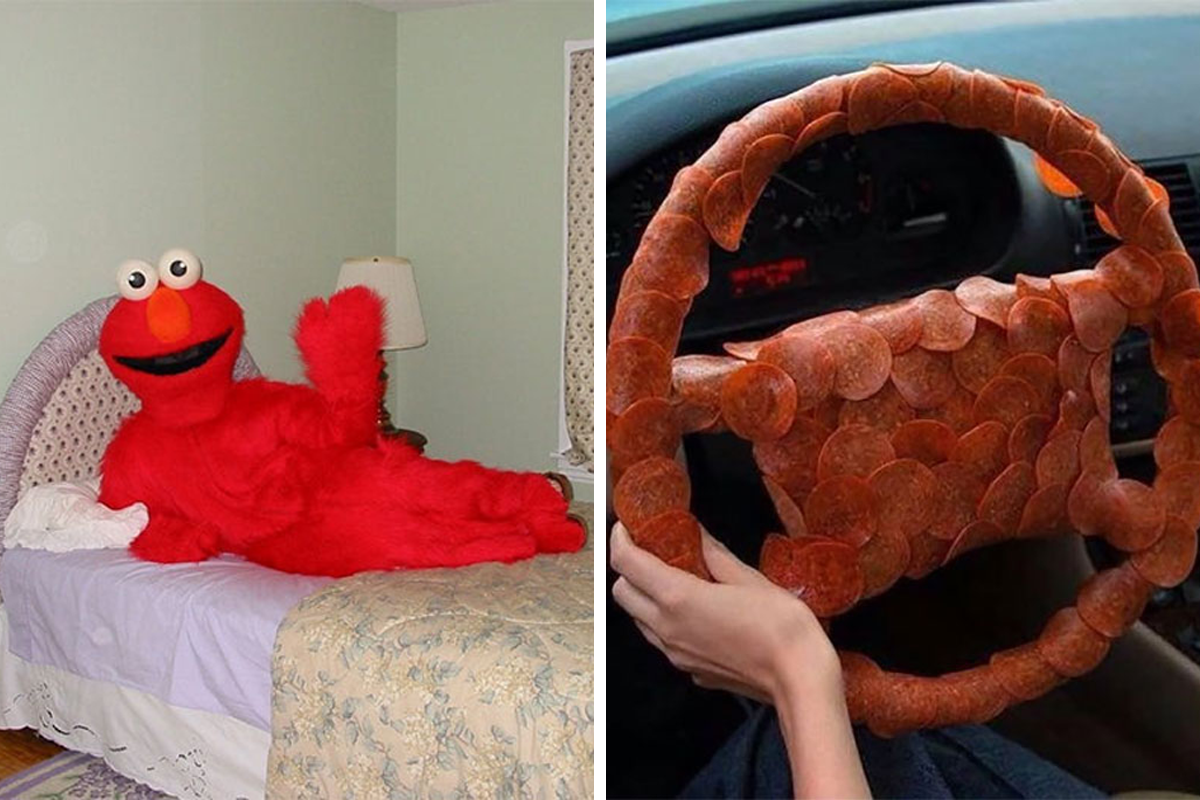
410Kviews
This Group Is All About Sharing “Cursed Images”, And Here’s 34 Of The Most Bizarre Ones
Similar to this subreddit and this Instagram account, the Facebook page 'Daily Cursed Images' shares absurd, strange, and slightly unsettling pictures that somehow feel both innocently funny and wickedly malevolent at the same time.
Whether it's a surreal visual gag, such as an animal with human-like features, or questionable decisions, like pouring a can of beans into a washing machine instead of laundry detergent, these uploads certainly provide more questions than they give answers, and the deliberately empty captions don't help, either.
However, the lack of context and reason is what makes scrolling through this page so entertaining. You never know what you're going to see next. And in a time when so much of social media is just the same recycled ideas, that's kinda refreshing.
More info: Facebook
This post may include affiliate links.
The chances of being brutally murdered by a void is low but never zero
Even the best online detectives would probably have trouble decyphering these images. Former FBI Counterintelligence Agent and the author of What Every Body is Saying, Joe Navarro, is an expert on nonverbal communication and body language. He's frequently asked by people on social media to analyze a photograph, usually, with no context, too.
"The request may be quite specific and demanding: 'Does she like me?' 'Do they look like they are breaking up?' 'Did he do it?' 'Are they more than friends?' And my favorite: 'Is he lying?' My answer is usually the same: 'I don't know, I can't tell,'" Navarro wrote.
"I can say that with ease because most of the time little or no context has been given to me. Plus, deception is hard enough to detect face-to-face (we succeed maybe 50% of the time—a coin toss); it is even more difficult, if not impossible, from just a photograph."
"Perhaps television is responsible for these assumptions—profilers depicted in TV dramas seem to be able to do this so easily. In any case, the photographs just keep coming," Navarro said.
"I will admit that there are times when a single nonstaged photograph speaks volumes about what is going on and how people feel about each other, or a photo reveals that there are some issues, but those are exceptions, not the rule. Photographs are notoriously stingy about revealing what people are thinking, feeling, desiring, or intending, especially if the image has been staged, so we must be cautious: we don't often know the precise context, nor what events have taken place before or at the time the photograph was taken."
Here are 10 things Joe Navarro suggests for those interested in nonverbal communication to think about when analyzing a photograph:
- Context is important. When was the picture taken? Where was it taken? Why was it taken? Who took it? And what was going on at that moment and that day?
- Was this a public or a private event and how many people, including the photographer, were present? Keep in mind that with politicians and celebrities, photo opportunities or presentations are very well-staged.
- Was the photograph taken with the subject's knowledge, or surreptitiously? This can make a big difference, as “nanny cam” photographs can attest.
That's the biggest horse I've ever seen! Explanation: The hand is a unit of measurement used to measure horses equal to four inches.
- What took place prior to the photograph? In other words, are we seeing in the photo a reflection (legacy behaviors) of behaviors from 5, 10, or 20 minutes earlier? Humans aren’t spigots—we tend to carry with us negative emotions for hours and these eventually leak out nonverbally. So when we see a particular behavior on camera, we have to ask: Did something cause emotional distress or its opposite, euphoria, before the photo was taken?
- Is the subject shy or introverted, and did they resist or object to being photographed? I know some folks who smile all the time, but put them in front of a camera and they look absolutely constipated—they just don’t like their photo taken.
- Does this person like to be photographed, or are they accustomed to being photographed? This is significant because some people — politicians, in particular — will put on a great mask that may hide what they are thinking.
- If we are seeing displays of psychological discomfort or distancing, we must wonder why. Is it because of the picture-taking process itself? Those who are present in the photograph? Or perhaps even because of the photographer or someone else behind the camera? (This was how the mystery of the missing girl in Stieg Larsson’s The Girl With The Dragon Tattoo was solved.) In real life, some family photographers can be very annoying with their constant herding of people together for yet another photo and that accounts for some of the faces we sometimes see.
- Beyond the everyday behaviors of interest and extreme comfort (smile, hand-holding, head tilt, etc.), look for hip-to-hip standing (things are good); palms touching with the full hand versus fingertips or a fist (these show distancing and reserve); crossing of the legs while standing (if they were to fall they would fall toward a specific person—this is a high-comfort display and also a show of preference), or any other number of displays that say: I like this person or, I am uncomfortable at the moment.
- As in physics, intrusive observations affect what we are observing, so don’t be surprised when people are caught by the paparazzi and they are upset (showing cues of psychological discomfort). Like Sean Penn, I would not want photographers lurking outside my house every day with cameras.
- "Selfies" are perhaps the most unreliable photos to analyze because of poor quality, low resolution, fuzzy image, and the necessity to clump together two or more faces to the exclusion of the rest of the body. Keep in mind that there are other parts of the body that are more reliable than the face when it comes to true feelings.
However, as Navarro pointed out, we must remember that when we see a photograph, we are witnessing a moment in time that may or may not reflect the reality of that moment.
"We may be seeing reactions by individuals to their environment, what has transpired in the recent past, what may await them when the picture-taking is over, or who is present in the room, as well as how they feel emotionally at the moment—but even then it is difficult to discern the true cause," 25-year veteran of the FBI explained. "So, we have to be careful with any analysis of a mere photograph and not go beyond what we can logically say."
Sometimes, all we can do is just scroll through.
This is a meme based on a real event. The meme is titled "Number 15: Burger King Foot Lettuce" after a video describing top 15 mysteries solved by 4chan, where a photo posted on 4chan of someone standing in lettuce bins claiming that they were served to people, and 4channers used the exif data of the photo to locate the perp. Every photo that is not the original, such as this one, is photoshopped or set up for the meme. This one is set up for the meme.
you know, perhaps it was not a good idea to eat this as i was eating AND right about to go to bed 😺 (HAPPY NEW YEARS EVERYONE!! 🌟🎉🎊🎆🎇✨)
I think I need to go back and look at the rescue pets again after this.
you know, perhaps it was not a good idea to eat this as i was eating AND right about to go to bed 😺 (HAPPY NEW YEARS EVERYONE!! 🌟🎉🎊🎆🎇✨)
I think I need to go back and look at the rescue pets again after this.


